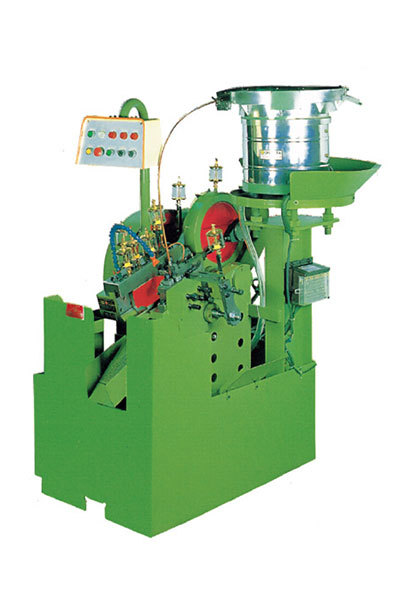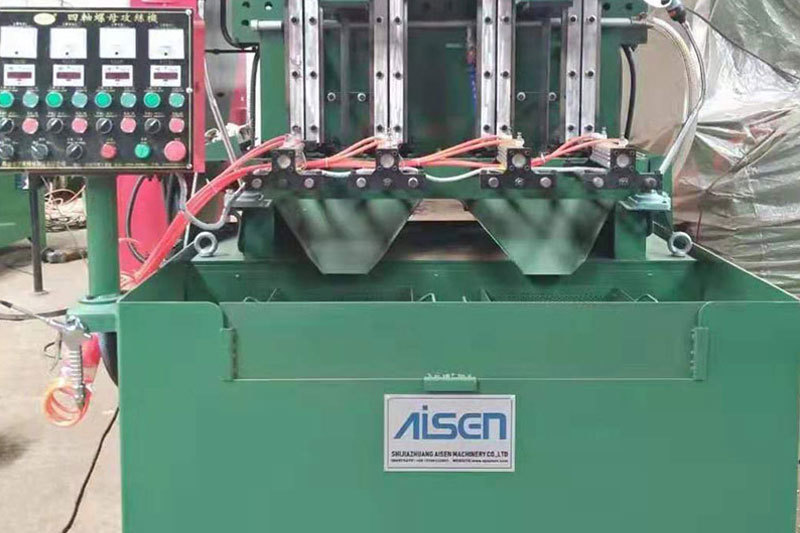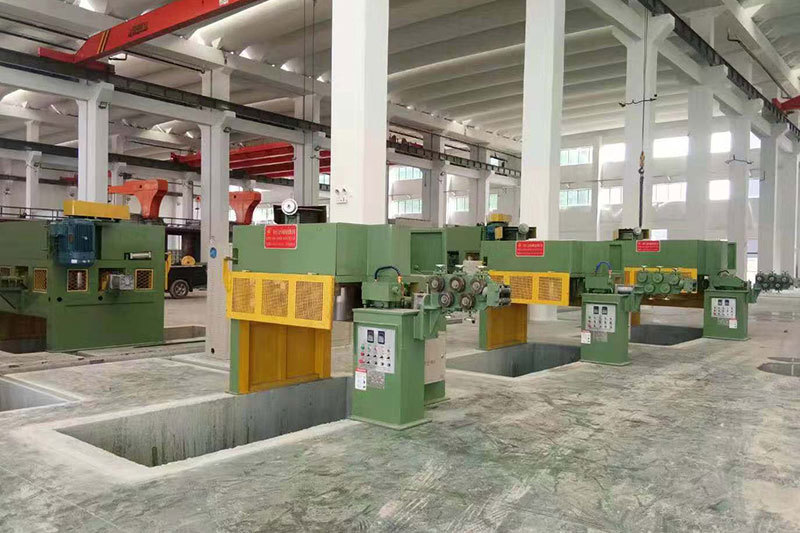The Critical Role of Quality Control in Bolt Cold Forging Processes
Summary:
The Critical Role of Quality Control in Bolt Cold Forging Processes
Understanding Bolt Cold Forging Processes
Bolt cold forging is a manufacturing technique used primarily for producing high-strength bolts with enhanced mechanical properties. This process involves shaping metal at room temperature through a series of operations, thereby avoiding the need for thermal energy that can affect the mate

The Critical Role of Quality Control in Bolt Cold Forging Processes
Understanding Bolt Cold Forging Processes
Bolt cold forging is a manufacturing technique used primarily for producing high-strength bolts with enhanced mechanical properties. This process involves shaping metal at room temperature through a series of operations, thereby avoiding the need for thermal energy that can affect the material's integrity. The primary benefits of this technique include:
- **Increased Strength**: Cold forging significantly improves the strength-to-weight ratio of bolts.
- **Cost Efficiency**: Reducing material waste and energy consumption leads to lower production costs.
- **Precision and Consistency**: The process allows for tight tolerances and uniform product dimensions.
Despite these advantages, the success of bolt cold forging heavily relies on meticulous quality control measures.
The Importance of Quality Control in Manufacturing
Quality control (QC) is not merely a regulatory requirement; it is the backbone of any successful manufacturing process. For bolt cold forging, implementing a robust QC system ensures that every component meets the required specifications and industry standards. Some of the key reasons for emphasizing quality control in this sector include:
- **Enhancing Product Reliability**: Bolts are critical components in various structures and machinery. Quality control ensures that they can withstand operational stresses.
- **Reducing Defects**: Identifying and addressing defects early in the manufacturing process reduces rework and scrap rates.
- **Ensuring Compliance**: Many industries have stringent regulations regarding bolt specifications. Quality control helps manufacturers remain compliant.
Key Components of Quality Control in Bolt Cold Forging
To establish an effective quality control system in bolt cold forging, several critical components must be integrated into the manufacturing process:
1. Material Selection and Inspection
The quality of raw materials is paramount in producing high-quality bolts. A robust QC system should include:
- **Material Certification**: Ensure that all materials come with appropriate certifications, verifying their quality and composition.
- **Incoming Inspection**: Conduct thorough inspections upon receiving materials to identify any discrepancies or defects.
2. Process Monitoring
Monitoring the cold forging process is essential for maintaining quality:
- **Real-Time Data Tracking**: Implementing sensors and IoT technology can provide real-time data on temperature, pressure, and material flow, allowing for immediate adjustments.
- **Process Parameters Control**: Regularly calibrate machinery to ensure precise operation within specified limits.
3. Final Product Testing
Once bolts are forged, they must undergo rigorous testing:
- **Mechanical Testing**: Conduct tensile, hardness, and impact tests to ensure the bolts meet strength requirements.
- **Dimensional Inspection**: Use precision measuring tools to verify that the dimensions of the bolts adhere to tolerances.
Implementing Quality Control Best Practices
To maximize the effectiveness of quality control in bolt cold forging processes, several best practices should be adopted:
1. Employee Training and Engagement
Investing in workforce training is vital for quality control success. Employees should be well-versed in:
- **Quality Standards**: Understanding industry-quality standards and how they apply to their work.
- **Inspection Techniques**: Familiarizing themselves with inspection processes and testing methodologies.
2. Continuous Improvement Culture
Adopting a continuous improvement mindset can lead to significant quality enhancements:
- **Feedback Loops**: Encourage employees to provide feedback on the QC process, identifying areas for improvement.
- **Quality Audits**: Regularly conduct quality audits to assess compliance with QC protocols and identify improvement opportunities.
3. Leveraging Technology
Incorporating technology can streamline quality control processes:
- **Automated Inspection Systems**: Utilize advanced imaging and AI systems for faster and more accurate inspections.
- **Data Analytics**: Analyze production data to identify trends, predict failures, and enhance overall quality.
The Impact of Quality Control on Operational Efficiency
Quality control in bolt cold forging not only ensures product integrity but also significantly impacts operational efficiency:
1. Minimizing Waste and Costs
A robust QC system helps reduce scrap rates and rework due to defects:
- **Material Savings**: By identifying defects early, manufacturers can minimize the use of materials on flawed products.
- **Cost Reduction**: Lower rework and scrap rates lead to reduced operational costs.
2. Improving Production Speed
Effective quality control measures can enhance the overall speed of the production process:
- **Streamlined Processes**: By detecting issues early in the production line, manufacturers can prevent bottlenecks and delays.
- **Faster Time-to-Market**: High-quality products can be delivered to customers more quickly due to fewer disruptions.
3. Enhancing Customer Satisfaction
Quality control directly correlates with customer satisfaction:
- **Reliable Products**: By delivering high-quality bolts, manufacturers build trust and loyalty with clients.
- **Positive Reputation**: Consistently meeting or exceeding quality expectations enhances the brand reputation.
Challenges in Quality Control for Bolt Cold Forging
While the benefits of quality control are significant, several challenges may arise:
1. Resource Allocation
Implementing a comprehensive quality control program requires resources, including time and investment in technology and training.
2. Resistance to Change
Employees accustomed to traditional practices may resist new QC protocols, hindering implementation.
3. Keeping Up with Industry Standards
Rapid advancements in manufacturing technology and changing industry regulations necessitate continuous updates to quality control practices.
Future Trends in Quality Control for Bolt Cold Forging
As the manufacturing landscape evolves, so too will quality control practices:
1. Increased Automation
Automation in quality control processes is likely to increase, leading to greater efficiency and accuracy in inspections.
2. Advanced Data Analytics
The integration of big data and advanced analytics will enable manufacturers to make data-driven decisions for improving quality control.
3. Sustainability Focus
As sustainability becomes a priority, quality control practices will increasingly focus on eco-friendly materials and processes.
FAQs About Quality Control in Bolt Cold Forging Processes
1. What is the primary goal of quality control in bolt cold forging?
The primary goal of quality control in bolt cold forging is to ensure that every bolt produced meets established quality standards and specifications, thereby ensuring safety and reliability in their applications.
2. How often should quality control inspections be performed?
Quality control inspections should be conducted at multiple stages throughout the manufacturing process, including incoming material inspection, in-process monitoring, and final product testing.
3. What standards should bolt manufacturers adhere to?
Bolt manufacturers should adhere to industry standards such as ISO 9001 for quality management systems and ASTM standards for specific material properties and manufacturing processes.
4. How can technology enhance quality control processes?
Technology can enhance quality control processes through automation, real-time data tracking, and advanced inspection systems that improve accuracy and efficiency.
5. What are the consequences of poor quality control in bolt manufacturing?
Poor quality control can lead to defective products, increased scrap rates, higher operational costs, and ultimately loss of customer trust and business.
Conclusion
In conclusion, quality control plays a vital role in bolt cold forging processes, ensuring that high-quality products are consistently produced. The integration of rigorous QC measures not only enhances the strength and reliability of bolts but also contributes significantly to operational efficiency and customer satisfaction. By investing in training, leveraging technology, and fostering a culture of continuous improvement, manufacturers can overcome challenges and adapt to evolving industry demands. Prioritizing quality control in bolt cold forging is not just a regulatory requirement, but a strategic imperative that drives success in today’s competitive manufacturing landscape.
PREVIOUS:
Latest News
AISEN Four axis nut tapping machine ready for shipment to Russia
Four axis nut tapping machine for DIN934 M8,M10 Standard hex nut is ready for shipping to Russia by land transportation.
AISEN machinery inverted wire drawing machine
We hope to cooperate with more customers for mutual development and benefits. You are welcome to contact us









